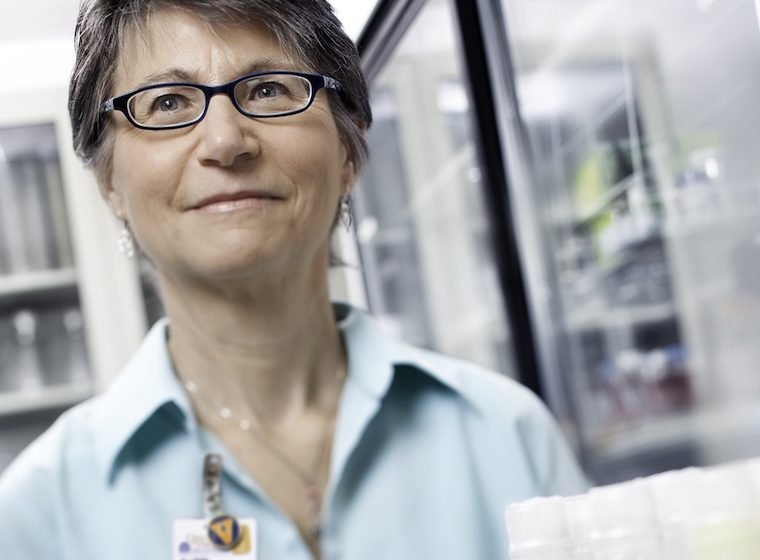Our Judith M. White, PhD, is part of an international team of scientists that has created a plan to identify new treatments for COVID-19 – and future pandemics – in only weeks, instead of months or years.
Professor White and her collaborators aim to speed the development of drug cocktails that can be quickly moved into clinical trials. These cocktails would combine two or more medicines to maximize their effectiveness, potentially making a treatment that is only moderately helpful much more potent. This combination approach is already common for treating viruses such as HIV.
The researchers have laid out a five-point plan they say will speed new treatments:
- Prioritize drugs that people could take at home, either by mouth or inhalation, after exposure or when symptoms first appear.
- Focus on drug combinations, rather than individual drugs, to reduce the chance viruses will become drug resistant.
- Prioritize drugs that are already approved or in advanced clinical trials, to accelerate how quickly their safety and effectiveness can be assured.
- Focus on drugs that can be given to people at doses that will yield anti-viral effects without toxic side effects.
- Use advanced computer models to identify useful drug combinations and speed development.
"We need to proactively develop drug cocktails against virus families as a whole – for example, all coronaviruses – to be ready on day one if a new virus or variant emerges. The cocktail should be low cost, easy to transport and distribute, and easy to self-administer – therefore available to people across the globe," Professor White said. "Having easily deployable, easily administered, inexpensive drug cocktails on the shelf when a new virus outbreak occurs would buy time from virus discovery to development and roll out of sequence-dependent countermeasures like vaccines and designer drugs, and could therefore blunt the initial stages of an epidemic."
The plan was developed by Professor White, of our Departments of Cell Biology and Microbiology, Immunology and Cancer Biology, and colleagues in Seattle, at the University of Washington and the Fred Hutchinson Cancer Research Center; the University of Maryland; and MRI Global, as well as collaborators in Estonia, Finland and Norway. They've presented it in full in the scientific journal mBio.
